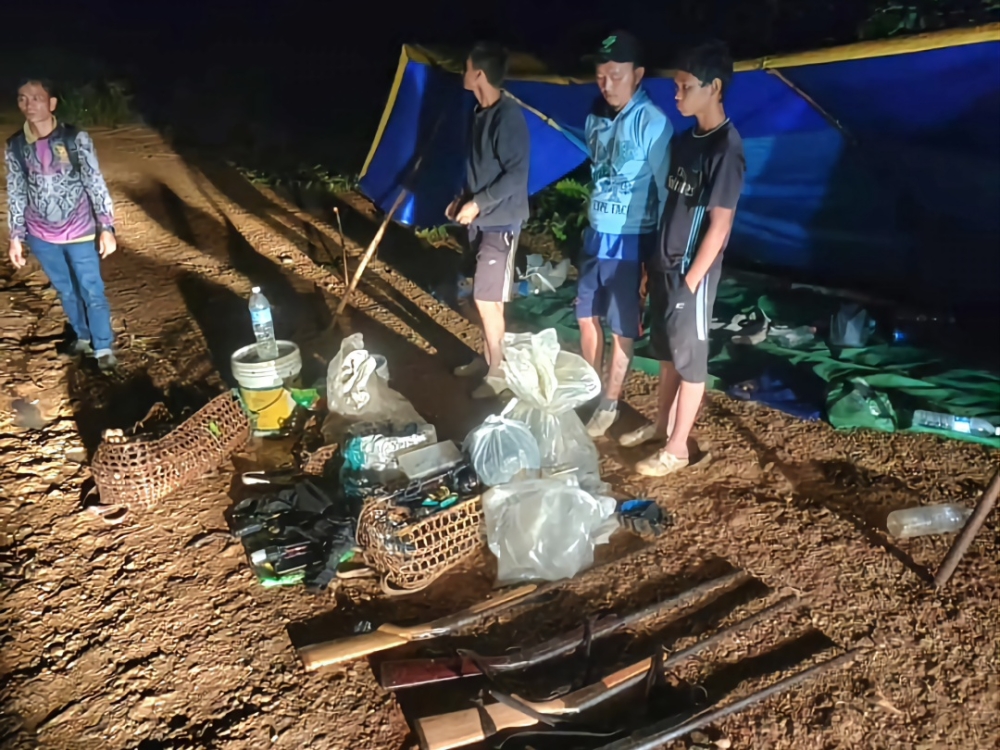SIBU, March 27 — Illegal hunting in Sarawak has become an increasingly alarming issue, evolving from a means of subsistence to a form of entertainment known as ‘game hunting’.
This trend has raised serious concerns among conservation experts, as it poses a significant threat to the region’s already declining wildlife population.
According to Sarawak Forestry Corporation (SFC) general manager Abang Arabi Abang Aimran, illegal hunting has shifted towards individuals who hunt purely for personal gratification.
“The majority of rural communities still hunt out of necessity, but there is a cultural shift among modern hunters who view hunting as a hobby or challenge.
“They no longer hunt for food but rather for enjoyment and prestige,” he told The Borneo Post yesterday.
He explained that traditional hunting, typically carried out by rural communities, serves as a source of protein or is embedded in cultural customs.
Conducted on a small scale, it has historically had minimal impact on ecosystems, as past generations understood the importance of environmental balance.
SFC enforcement officers conduct surveillance at one of the illegal hunting hotspots within the SFC Sibu jurisdiction several years ago. — Picture from Sarawak Forestry Corp
In contrast, game hunting is driven by self-gratification, with little regard for the long-term impact on wildlife populations.
“Hunters in this category often see hunting as a sport or personal challenge, and some even take pride in showcasing their kills on social media.
“More worryingly, some use advanced equipment such as high-powered firearms and modern traps, leading to more animals being killed in a short period,” said Abang Arabi.
Since January 2025, SFC has detected four cases of illegal hunting and seized 130kg of wildlife meat during enforcement operations.
Among the most frequently targeted animals are deer, civets, binturongs, softshell turtles, and pythons.

SFC enforcement officers promote the ban on selling wildlife meat at the Batang Ai Wet Market. — Picture from Sarawak Forestry Corp
Abang Arabi identified Sri Aman, Belaga, Kapit, and Baram as illegal hunting hotspots due to their accessibility via four-wheel-drive vehicles.
“Between 2024 and March this year, a total of 54 arrests were made under the Wildlife Protection Ordinance (WLPO), with six cases prosecuted in court,” he revealed.
Despite various awareness campaigns, he acknowledged that the main challenge remains the public mindset, which continues to view wildlife primarily as an economic resource.
“For some rural communities, hunting is not just a tradition but also a source of income.
“Awareness of conservation remains low, as they consider the forest an essential part of their livelihood.
“Additionally, social media has become a major platform for the illegal wildlife trade,” he explained.
However, Abang Arabi noted a positive shift, as more social media users are now reporting online sales of wild animals to authorities.
To combat illegal hunting, SFC has intensified patrols and deployed technology such as drones and camera traps to detect offenders.
Authorities are also working to strengthen existing laws to impose harsher penalties on violators.
“We are now in the final phase of finalising amendments to the WLPO. Several proposals have been put forward, including stricter punishments to ensure that illegal hunters do not escape easily,” said Abang Arabi.
With the growing threat of game hunting, urgent action is needed to prevent Sarawak’s wildlife from vanishing due to human greed. — The Borneo Post







